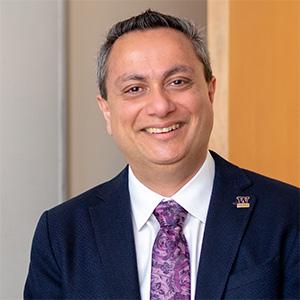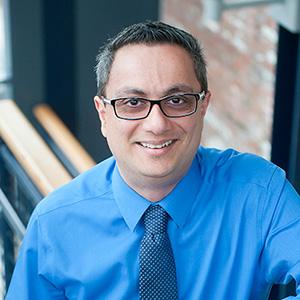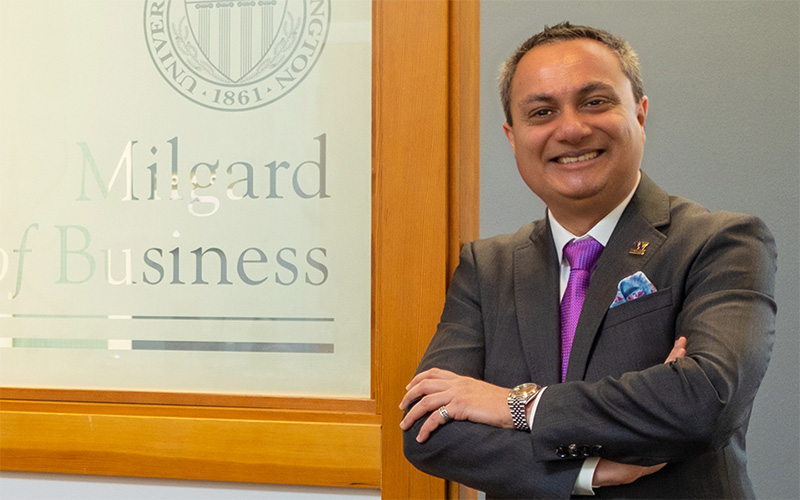
Meet Altaf Merchant
Dean Altaf Merchant sees the Milgard School as a catalyst for entrepreneurship and social responsibility in the South Sound region.
This Section's arrow_downward Theme Info Is:
- Background Image: ""
- Theme: "light-theme"
- Header Style: "purple_dominant"
- Card Height Setting: "consistent_row_height"
- Section Parallax: ""
- Section Parallax Height: ""
A small boy in robes and a mortar board is shaking hands with his school principal. The boy is Altaf Merchant and he is five years old and graduating from kindergarten in Mumbai, India.
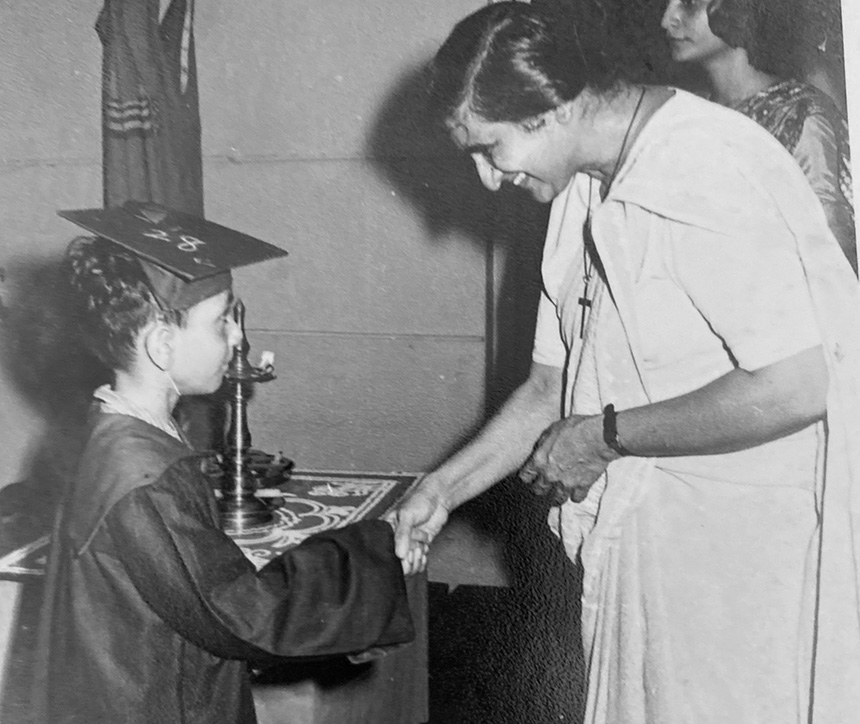
Fast forward to February 2021: UW Tacoma announces that Dr. Altaf Merchant has been appointed as the Gary E. and James A. Milgard Endowed Dean of the Milgard School of Business.
This Section's arrow_downward Theme Info Is:
- Background Image: ""
- Theme: "gold-light-theme"
- Header Style: "purple_dominant"
- Card Height Setting: "consistent_row_height"
- Section Parallax: ""
- Section Parallax Height: ""
Merchant Media
The local business and lifestyle press have already discovered Dr. Altaf Merchant.
“24 Hours: Altaf Merchant” – he loves his tea, and his family breakfast
“The List: Dr. Altaf Merchant” – he loves to grill and garden, and the opulence and fantasy of 17th century India
This Section's arrow_downward Theme Info Is:
- Background Image: ""
- Theme: "light-theme"
- Header Style: "purple_dominant"
- Card Height Setting: "consistent_row_height"
- Section Parallax: ""
- Section Parallax Height: ""
The journey from elementary school in Mumbai to the leadership of the South Sound’s leading school of business is not a linear path, and not a solo effort. Through interviews and a Q-and-A session, Merchant has graciously shared his experiences as an immigrant to the U.S., highlights from his professional and academic career, and why he sees this moment as a watershed for business education in the South Sound.
Use Your Outdoor Voice
It’s hard to know what goes on in the mind of a child. Is there one moment that inspires a lifetime interest, or is it the steady accumulation of observations?
Merchant doesn’t trace his interest in marketing to one cataclysmic revelation. He does remember riding in the car as a child with his mother drawing his attention to the billboards on every side of Mumbai’s highways. She encouraged him to see them as more than just two-dimensional blocks of color. What feelings did they evoke? What did they seem to mean?
“Looking at those billboards made me conscious of marketing and messaging,” said Merchant. “It’s a tough habit to break – I still do it today.”
Merchant grew up in Mumbai during the 1970s and 80s. His family was traditionally part of the business community of the city, which was known as Bombay during the time of British colonial rule. Merchant says his great-grand uncle changed the family’s traditional name to Merchant when he went to the United Kingdom to study, and the Anglicized name was adopted by subsequent generations.
The city has a tropical climate, and is an Indian Ocean port on the country’s west coast. It is about the same distance north of the equator as is Puerto Rico. The monsoon season is one of the defining features of local weather patterns: the months of June and July see enormous amounts of precipitation – almost non-stop rain and weeks with no sunshine. By contrast, January and February are months of fine weather, comfortable temperatures and much less rain.
Merchant remembers being studious, “but I was also very involved in extra-curricular activities and sports. I liked debating and elocution, and I was the Chief Leader of my high school [the equivalent of study body president]. I also enjoyed simple pleasures such as biking, climbing trees and playing with my cat, named Bush.”
Merchant’s father was a public accountant. “I was very impressionable,” he said. “My father used to teach accounting in an executive education program, and I was almost like his teaching assistant, helping with grading and such.”
He received a Bachelor of Commerce degree from Sydenham College -- which at the time was affiliated with the University of Mumbai – with a focus on accounting.
“I loved my accounting education, because it gave me the background to understand business fundamentals,” said Merchant. This would come in handy during the time he worked in the private sector, but it is also important in the context of public higher education, he says.

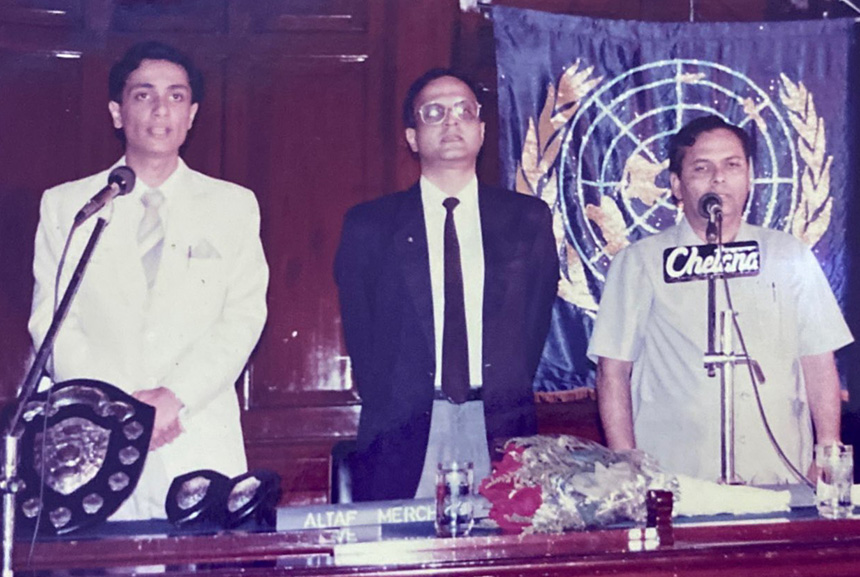
Bayer and the Dual Education System
The next stage in the evolution of Merchant’s career came via a system of management training that emerged in Germany after World War II. Under the Dual Education System, students embark on an intense “apprenticeship” with a company, applying what they have learned in their coursework as they develop solutions to real-world business problems.
Merchant had read in the newspaper about the “industriekaufmann” (management trainee) program that German pharmaceutical giant Bayer was offering through the Indo-German Chamber of Commerce in Mumbai. He applied and became part of the third cohort of Indian students to go through Bayer’s two-year program.
“I spent time in the factory on the shop floor, I did materials resource planning, I ran a spare equipment store, I worked in the merchandising department and in marketing. Every one or two months, we would spend time in the training room. That gave me a complete understanding of the company.”
During his management training with Bayer, Merchant got a chance to flex his developing marketing muscles.
“Bayer had a consumer pest control business,” said Merchant. “The brandname was Baygon.” (Bayer sold the product line to S.C. Johnson & Son in 2003.) “In India, they had a big inventory, but didn’t really know what to do with it, how to sell it to the Indian consumer.”
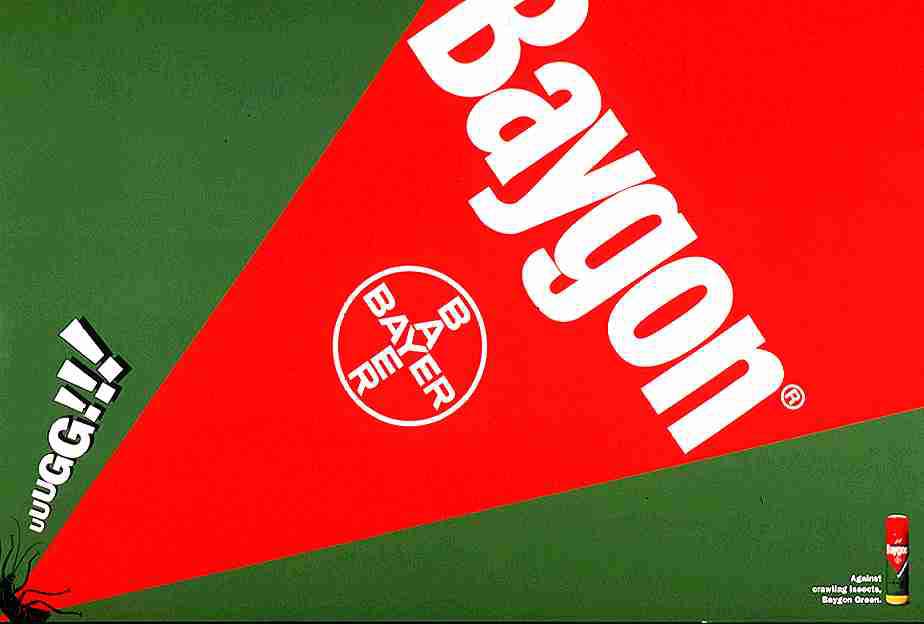
Merchant met with about 100 households in economically depressed areas and got a 360-degree view of their lives. On the basis of that research, he developed proposals for a pricing strategy, the sales channels (traveling salesmen), and how to stimulate word-of-mouth product recommendations.
“Bayer implemented my proposals in India, and it was a big success. They sold all their inventory.”
That was the point at which Merchant decided his real interest lay in marketing, rather than accounting. He enrolled in the Marketing MBA program at the K.J. Somaiya Institute of Management, also in Mumbai.
Success in the Private Sector
After receiving his MBA, Merchant entered the private sector, but not with Bayer. Instead, he moved to Delhi to take a position with Sara Lee Corporation, a multi-national American-headquartered company with consumer brands in many countries, including India.
Delhi is a mega-city. Today the metro area population is about 24 million. India’s national capital, New Delhi, is its own city entirely surrounded by Delhi. Land-locked, the region is about 2.5 hours by air north and east of Mumbai, about 100 miles from the ridge of the Himalayan Mountains.
Merchant lived in Delhi from 1997 to 2005. While at Sara Lee, he was a brand manager in their household insecticides division. Over the next several years, he took increasingly responsible positions with a series of companies: Reckitt Benckiser, GlaxoSmithKline and Ranbaxy Laboratories.
At these companies, Merchant managed a variety of brands and product lines in countries such as South Africa, Hong Kong, Dubai, the United Kingdom, India, Sri Lanka, Bangladesh, the U.S., Russia, Ukraine, Romania, Myanmar and Vietnam. Brands included Dettol (antiseptics and soaps), Disprin (analgesics), Aquafresh (the toothpaste), and Horlicks (a health-food drink similar to Ovaltine).

“My career was going quite well,” said Merchant. “In about 2004, I got an opportunity to do a guest lecture at the University of Delhi. I really enjoyed my interactions there, with students and faculty. Somewhere in the back of my mind, I had always had the idea of getting a Ph.D. and doing research.
“I had visited the U.S. a few times for work and was fascinated by the meritocratic system and the values of equality, achievement and individualism.
“In 2005, I decided to switch careers and come to the U.S. to get my Ph.D.”
A Bold Decision
“I was told by my peers and mentors that this was a bold decision. And it was! To leave my high-paying job and rising marketing career to start afresh as a doctoral student.
“I never had it in my mind to become a dean of a business school. Who decides they want to be a dean when they are a Ph.D. student?”
What was drawing Merchant to a new career in research and academia was something he had observed while working as a brand manager: the pull of nostalgia (see sidebar).
Merchant relocated to Norfolk, Virginia, and enrolled in the doctoral program at Old Dominion University’s College of Business & Public Administration. He ended up doing his dissertation on the role of nostalgia in advertising.
“I had many good mentors at ODU,” said Merchant. “I can’t overstate the importance of mentorship for anyone building a career. This is why one of my focuses today is to help the next generation of scholars.”

Coming to UW Tacoma
Merchant received his Ph.D. in 2008. “Like every hopeful academic, I applied to a number of positions that happened to be open that year. One was at UW Tacoma, in the Milgard School,” said Merchant. “I was fascinated by the reputation of the school and the faculty, and the connection to the University of Washington.
“At the same time, I was interviewing with the Kellogg School, at Northwestern University. The dean at ODU was very keen that I take that position. Sometimes deans get very fond of reputation,” said Merchant, with a wry smile.
“I was already a little familiar with Seattle. I quickly became very impressed with the other communities in the Puget Sound region, with the very robust economy. I was drawn to the Tacoma campus because it seemed just the right size – I could grow my career as the campus grew around me.
“I came to the school just at the beginning of the Great Recession. I quickly saw how the community came together to support the school during that time. We weathered that downturn pretty well, and now we have truly emerged as the leading business school in the South Sound.”
Educate, Explore, Engage
Merchant has served in many roles in the Milgard School, across campus, in his discipline and in the community. He is on the boards of directors of Sound Credit Union and the Museum of Glass. He is the associate editor of the Journal of Advertising Research and on the editorial board of the Journal of Business Research. He served as interim dean in the Milgard School from 2019 until his appointment as the settled dean this year. He has had visiting professorships and fellowships at universities in the UK, France and India. In 2013, he received the Great Mind Award from the Advertising Research Foundation for the best paper published that year in the Journal of Advertising Research.
He draws from all his experiences and his relationships now as he envisions the future of business education in the region.

“We have developed a new mission and strategic plan for the Milgard School,” said Merchant. “It can be summed up in three pillars: educate, explore and engage.
“Much that we are already known for and that we have already developed is encompassed by these three concepts. We are now ready to sharpen our focus and use them as lenses to guide us in our future growth.”
Faculty and staff in the school are working on a major refresh of the curriculum. The first to be reworked was the accounting graduate degree, now structured as a Master of Science in Accounting (MSAcc). In collaboration with community leaders, the undergraduate curriculum is receiving a major overhaul. “We are looking to bring in cutting edge, interdisciplinary concepts such as critical thinking and analytics,” said Merchant. “We want our programs at all levels to be contemporary and relevant.”
“Tacoma and Pierce County are ideal breeding grounds for small and family businesses,” said Merchant. “Nearby Joint Base Lewis-McChord is a major source of people transitioning from active military careers to veteran status. There is a large unmet need for entrepreneurship training and coaching. Tacoma’s destiny, rather than attracting the Amazons and Boeings of today, is to generate new business activity and nurture it into tomorrow’s large companies. We want our school to be the catalyst for that.”
Merchant was growing up in India at the time of the world’s worst industrial disaster, the Bhopal gas tragedy, when more than 500,000 people were exposed to the highly toxic gas methyl isocyanate that leaked from a Union Carbide pesticide plant in Bhopal. For Merchant, as for many, the disaster served as a wake-up call for corporate social responsibility.
“I saw first-hand how those corporate leaders evaded responsibility for their impact on their community,” said Merchant. “Business schools are uniquely positioned to focus on the balance between profitability and ethics. We have the privilege to educate our students to see that ethics is not an option, to see that not just from a moral perspective, but from a business perspective. It’s all about imprinting. It’s about planting the seed of ethicality.”
Merchant will continue to prioritize basic and applied research by faculty, a hallmark of the school. He envisions hosting research conferences and seminars, creating residencies for guest scholars, and expanding collaborations with international universities. Work is already underway to establish a combination think-tank and incubator in collaboration with Sound Credit Union and UW’s CoMotion. “We are starting an executive-in-residence program,” said Merchant. “We want reflective practitioners to collaborate with faculty members on curriculum, guest lecturing and working with students on research.”
At a recent Kiwanis Club breakfast, Merchant was asked, “What are you doing in the high schools?” This has inspired rethinking on how the school approaches student recruitment. “What we do now,” said Merchant, “is, we harvest high schools. We get students who already know about and are interested in us. What happens to students who don’t even know there is a business school or what a business career is? How do we inspire them?”
The Milgard School plans to expand its K-12 school contact program. Merchant mentioned events such as boot camps and symposia for high school kids as options being considered, done in collaboration with UW Tacoma’s admissions team and in partnership with the 11 local districts that make up the Pathways to Promise compact.
Inspiration
Four new paintings grace Merchant’s campus office wall. They are by UW Tacoma retired professor JW Harrington. “I have had my eye on these paintings for several years now,” said Merchant. “I love the colors and the energy. They have emotion in them, and positivity. They are very inspirational.”

For Merchant, the paintings represent progress and creativity. That they are not necessarily harmonious with one another – that there is an implied competition among them – is OK. They strike a balance that delivers a stronger message than each would individually.
Today, Merchant can look back at his five-year-old self in cap and gown and know the outcome. He can see the stages of his journey to the present as pictures, like his paintings, representing progress and creativity. The journey is not over, but the Milgard School and the South Sound region are already enjoying the ride.
Main Content
Merchant of Nostalgia
Dr. Altaf Merchant can tell you why that grainy, black-and-white ad you just looked at turned you into a consumer.
News Tags on this arrow_upward Story:
- Faculty Profiles
- Milgard School of Business
- Research
Main Content
Merchant Receives Great Mind Award
Dr. Altaf Merchant of UW Tacoma's Milgard School of Business was honored for his research into the role of nostalgia in advertising.
News Tags on this arrow_upward Story:
- Faculty Profiles
- Milgard School of Business
- Research
